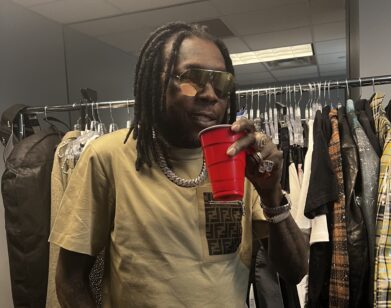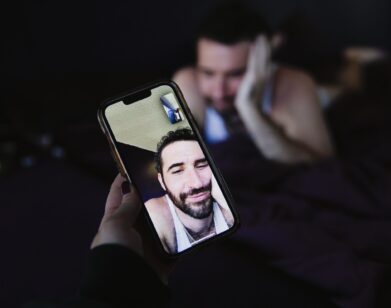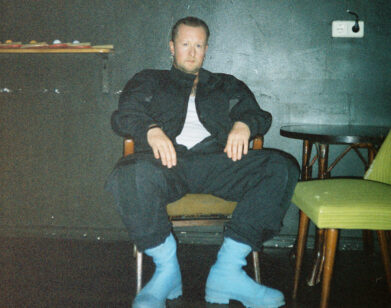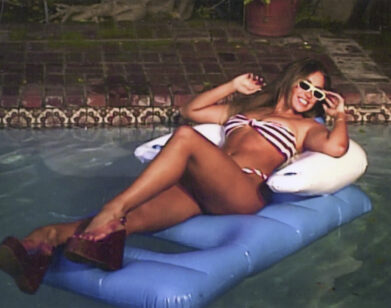Lizzo’s Big Moment
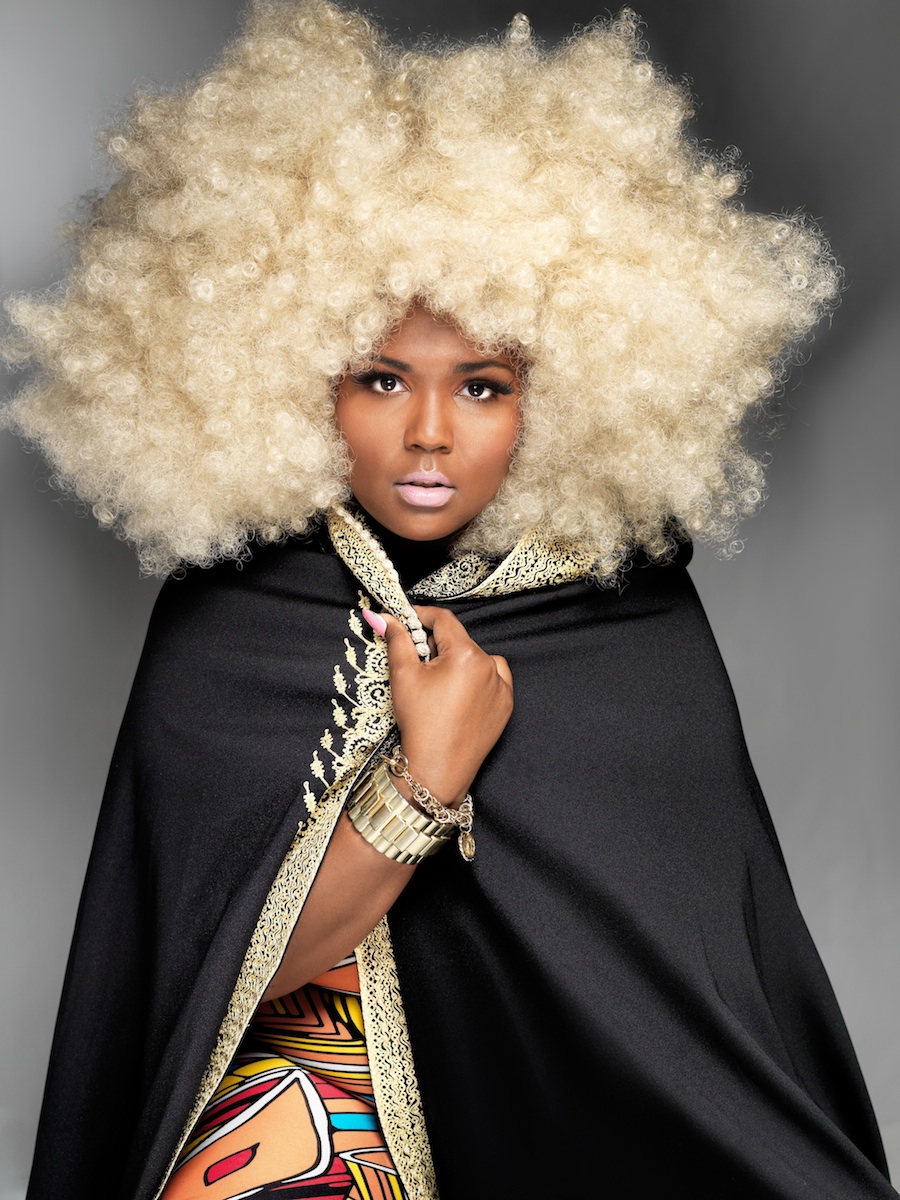
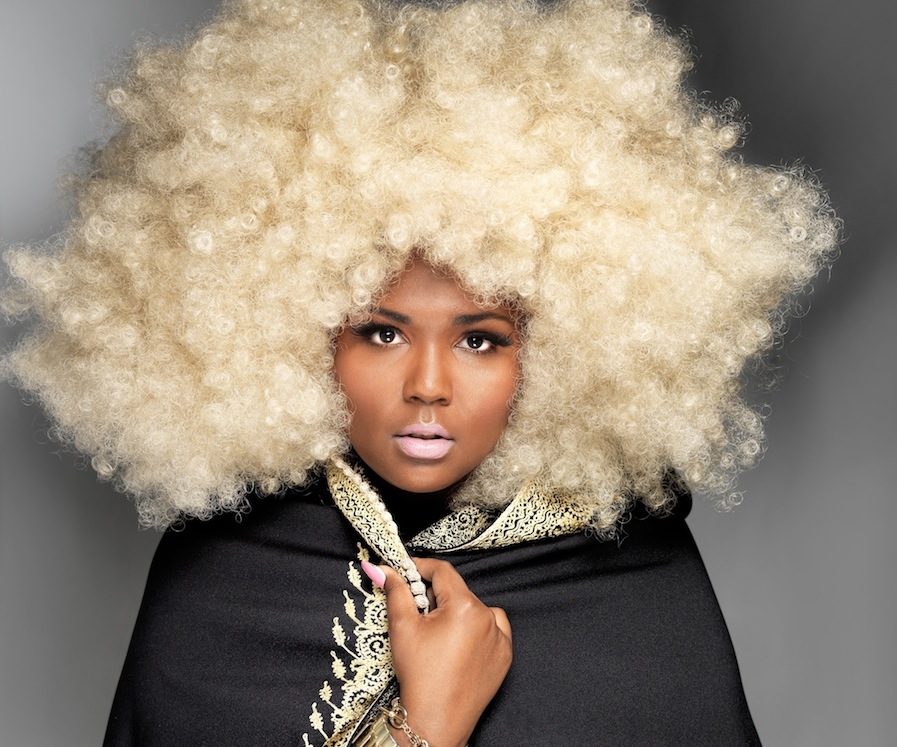
Melissa Jefferson, AKA Lizzo.
While many artists spend years carefully crafting their identities as performers, tracing new lines around themselves with sharper points and smoother edges, Minneapolis-based rapper Lizzo is making her living off of exactly who she always has been: “A big girl in a small world.”
As a classically trained flautist with gospel roots, Lizzo, born Melissa Jefferson, has devoted the majority of her waking life to music. Having split her formative years between Detroit and Houston, Lizzo became musically fluent in an urban and southern melting pot of alternative genres.
Since junior high school, Lizzo has participated in several all-girl collaborative projects; most recently with hip-hop collectives The Chalice (with Claire De Lune and Sophia Eris) and GRRL PRRTY (with Eris and Manchita). Within a year of moving to Minneapolis, Lizzo captured the attention of Ryan Olsen (Poliça, Gayngs) as well as Lazerbeak of Doomtree, who both quickly became eager to produce her debut solo effort, Lizzobangers. The result was a breakout anthology that showcases the emcees aptitude for belting melody and fearlessly clever rhetoric.
Currently on tour with Clean Bandit, Lizzo will be performing at Webster Hall this Tuesday, September 16. In anticipation of the show, we talked with her about role models, change, and what it means to be a woman.
LEA WEATHERBY: You were Melissa but now you’re Lizzo; how did that moniker come about?
LIZZO: When I was born, my father named me Melissa, and I am still Melissa [laughs] but I got the nickname Lizzo around the time I was in the Cornrow Clique. I’m from Houston, so naturally, everyone dropped the second syllable of your name and just put an “O” there. Everyone was calling me Mio and I was like, “I don’t know about that!” Then they started calling me Lisso for a while but that just eventually turned into Lizzo, when you say it more swaggy, and it just kind of stuck with me.
WEATHERBY: You’ve lived in Houston and Detroit, and your home base is Minneapolis; how have these cities impacted your music and style?
LIZZO: I lived in Detroit for about 10 years and I was mostly trying to be a writer or a scientist. I was all about the smartness in my scholastic career. [laughs] Then when I moved to Houston, I started to play flute and that really influenced me. I started to listen to music and obsess over music, in the best way, because I wanted to be the best at flute, and from there, it started. When I first saw Destiny’s Child, I was in the fifth grade, and it made me want to sing and make music and there would be these freestyles on the radio for what seemed like hours, it was just so cool to me. So all of these influences and these styles started to blend together. Eventually, that evolved into me finding the indie scene in Houston. When I was 19, I joined a rock band, and that’s when I began to say, “Okay, this is something that I could take seriously.” When I came to Minneapolis, it just refined everything.
WEATHERBY: How did you first connect with your label (Totally Gross National Product) and start working with Lazerbeak and Ryan Olsen?
LIZZO: I saw Lazerbeak and Plain Ole Bill do a Lava Bangers set on Record Store Day, and I remember thinking that they were playing superhero music: you could just see the Caped Avenger flying around. I introduced myself to Beak, I had already known Bill, but I just said, “Nice to meet you, you were awesome!” Shortly after that, when I fell into writer’s block, I used the Lavabangers CD and immediately started writing to it. I tweeted at Lazerbeak, Ryan Olsen saw our exchange and at some point DM’d me and said, “Come over, make some music and freestyle” and I was like, “Um, it’s nighttime, I just had a show and I am drunk!” But he sent a car anyway, and I went to this crazy loft apartment downtown with all these people there drinking and we freestyled in the kitchen, back and forth all night. From then on, I guess he wanted to work with me, and Twitter made it happen. So thanks, Twitter!
WEATHERBY: In your lyrics and on your merchandise, you state that you’re “A big girl in a small world,” what does that mean to you and your music?
LIZZO: It means just about everything at this point. It first started when I wrote “W.E.R.K.” Immediately, you think it’s about body image and you want to think that when I say that, I’m referring to my bigness. I mean, I’m 5’10”, I’m big [laughs] and I’ve always been this way—even when I was young I always had this mental gigantism where I felt bigger than I actually was and I still do. So every time I rap about being a big girl in a small world it’s doing a couple things: it’s empowering my self-awareness, my body image, and it’s also making the statement that we are all bigger than this, we’re a part of something bigger than this, and we should live in each moment knowing that. Just about anybody is a big girl in a small world [laughs] but you gotta believe it on the inside, that you can be bigger than the rest of it.
WEATHERBY: I think you’re a really exceptional role model to women. I’m wondering, when you’re writing a song, how conscious are you of connecting with your female audience?
LIZZO: Thank you, first of all, and secondly, I don’t think I write very consciously, and that has been something I’ve been trying to figure out. My brain is always just going really fast, and then I stop at a certain point and I’m like, “Fuck it, what do I have?” Generally, it’s all of this subconscious stuff. I didn’t even know what Lizzobangers was about until it was mastered and I got to listen to it. So when it comes to being a role model to women, I think it’s because of the way that I feel about myself, and the way that I treat myself. I am a woman, I treat myself with respect and I love myself, and I think that if I’m holding myself to a certain esteem and keeping it real with myself, then that’s going to translate to people like me.
WEATHERBY: You said you were a fan of Destiny’s Child, so as you probably know, Beyoncé was criticized for flashing the word “Feminist” during her VMA performance. In mainstream pop culture, how do you feel about how we critique others in terms of what it means to be a feminist?
LIZZO: There’s really educated women out there who are feminists and they have read up on their stuff. They can talk to me right now, and school me on some things I’ve never known, and that’s amazing, you are a scholar, you are wise, you are educated. But the unfortunate thing is also the reality, and the fact is, millions of people might not even know who these educated feminists are—hundreds will, thousands maybe. But millions at one time, beyond gender or race, had their attention fixed on her, and with that power, she chose to flash the word “feminist” all over our TV screens. If that don’t do nothin’ but make people Google the word, then that should make every feminist in the world proud.
WEATHERBY: What’s the hardest part about being a successful touring musician and what’s the most rewarding?
LIZZO: Starting out, I had to be everything. There was one point where Sophia Eris (GRRRL PRTY) and myself were driving, tour managing, merch managing, performing, DJing, and then we were also each other’s best friends. So if you can make it through, you know you’ve got something good, you can handle anything. We’ve been blessed to grow but at the same time, the hard part is having to wear every single hat. It’s exhausting, but it’s entirely worth it because on the flip side, the best part about being a touring musician is being a touring musician.
WEATHERBY: Were there any really defining moment this year that validated everything you’ve been working toward?
LIZZO: Yes. There have actually been two of them, and it’s funny because I can’t talk about either one! I will say that, when I was a kid and I was just getting into music, there was one artist that I said I was going to not only meet, but I was like, “I’m coming for you! You’re going to hear my music and we’re going to work together somehow!” It’s just so surreal…
WEATHERBY: And now it’s happening?
LIZZO: Yes. It’s low-key happening. What I can say is that one of the greatest moments happened within a year of moving to Minneapolis, and I’ve had the chance to work with one of the best artists ever. He’s a genius, and the fact that I’ve gotten to work with him in some capacity was super humbling.
WEATHERBY: Above all other things, what do you want your current and new fans to recognize about you as an artist?
LIZZO: You know what I want, above all things? I want people who are aware of my music right now, to believe in change. I feel like I am so blessed to have made a record like Lizzobangers, but I don’t think I will ever make another record like Lizzobangers, simply because I will never be like Lizzo two or three years ago. I’m going to make music that reflects me and my life now. So I think people who like my music and who listen to me should appreciate change as well, because I’ve definitely evolved, and that’s a great thing, to celebrate that is what music is all about.

